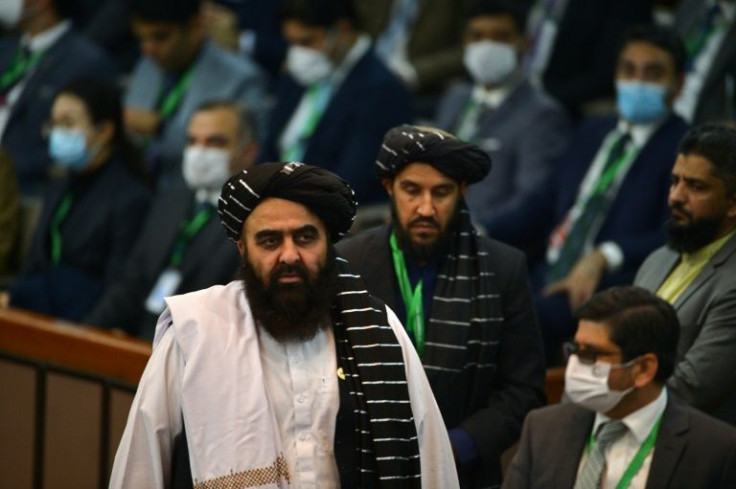Is the international community going soft on Taliban to avert humanitarian crisis ?

The international community, it seems, is going soft on the Taliban, fearing a humanitarian crisis in the cash-strapped landlocked nation.
Leaders from five Central Asian nations were present in India and Pakistan in South Asia on the same day on Dec. 19 to explore ways to help Afghanistan people, plagued by the 20-year US-led war and the subsequent takeover by the Taliban in August this year.
In a hurriedly-convened conference in Islamabad, Muslim nations under the ages of the 57-member Organisation of Islamic Cooperation (OIC) resolved to work with the UN to try to unlock hundreds of millions of dollars in frozen Afghan assets.
The meeting, the biggest on Afghanistan since the Taliban returned to power, was attended by special envoys from all the five UN permanent members and also from Germany and the EU.
Their resolution pledged "to unlock the financial and banking channels to resume liquidity and flow of financial and humanitarian assistance" to Afghanistan through the channel of the Islamic Development Bank.
The efforts will help free up assistance by the first quarter of next year, the resolution noted.
The international community is exploring ways to provide aid to the cash-stricken Afghan economy without propping up the hardline Islamists.
There are many who want to donate but "they want some mechanism that they are comfortable with," said Pakistan foreign minister Mahmood Hussain Qureshi.
India held the third Central Asian foreign ministers' meet Dec. 19 and the day-long summit agreed to use the India-run terminal at the Chabahar port in Iran as a route for trade.
The connectivity or what Indian foreign minister S Jaishankar called the "4 C's" of Commerce, Capacity enhancement, Connectivity, and Contacts was on the agenda at the meeting with foreign ministers of Kazakhstan, Kyrgyzstan, Tajikistan, Turkmenistan, and Uzbekistan to dispatch aid to ailing Afghanistan economy.
The India-Central Asia Dialogue explored setting up joint working groups to address issues of free movements of goods and services, according to the joint statement, issued after the summit.
While none of the countries recognize the Taliban, Turkmenistan and Uzbekistan have re-opened their embassies in Kabul after the Taliban takeover in August this year. India has thus far met the Taliban leadership twice publicly, in Doha and Moscow.
The Chabahar port on the Gulf of Oman has seen an increase in traffic after the Taliban wanted robust trade ties with India and the port is seen as a more "economical, stable, and secure route" for access to India and the global market for landlocked Afghanistan.
"India welcomed the interest of Central Asian countries to utilize the services of Shahid Beheshti Terminal at Chabahar Port for facilitating their trade with India and beyond," the joint statement, issued after the India-Central Asia Dialogue in New Delhi, said.
For landlocked Afghanistan the prime requisite is connectivity and Central Asian leadership is extending it under the stewardship of Chabahar port in Iran, which is operated by India.
The international community has tied these concessions to the Taliban's track record on how people in Afghanistan enjoy human rights.
A tough task indeed for the neo-Taliban which are facing threat due to the expansion of the Islamic State across all provinces in the country where around 23 million people face emergency levels of food insecurity.





